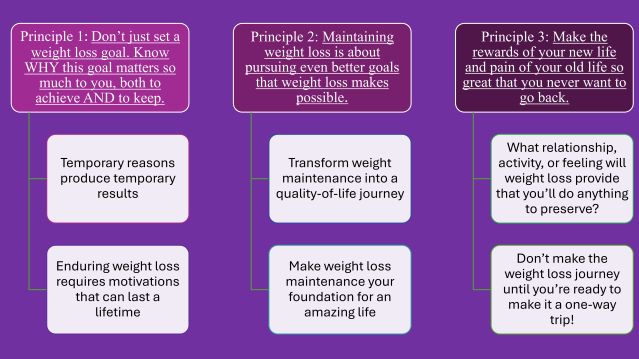The Ultimate Guide to Sustained Weight Loss: Psychology's Pivotal Role
Achieving initial weight loss is a significant accomplishment, but the true challenge often lies in keeping it off. Many people find themselves trapped in a frustrating cycle of losing weight only to regain it, questioning if lasting change is even possible. The good news? It absolutely is, and the answer often lies in understanding the surprising psychology behind our behaviors and habits.
This comprehensive guide will reveal how psychological principles are not just supplementary but absolutely critical for maintaining weight loss, especially in our evolving landscape of health and fitness. You'll learn actionable strategies to cultivate a sustainable mindset, adapt to new medical advancements, and empower your journey toward lifelong well-being.
What You'll Learn:
- Why psychology is more vital than ever for long-term weight management.
- How to leverage six core psychological principles for sustained success.
- Strategies to adapt your approach as your weight loss journey evolves.
- Insights into combining modern medical treatments with powerful behavioral science.
Prerequisites:
This guide assumes you've either achieved initial weight loss through lifestyle changes, medical interventions, or a combination. Our focus here is on the crucial next step: maintenance.
Why Lasting Weight Loss is the Holy Grail
For decades, the focus in health and fitness has largely been on how to lose weight. Yet, the more profound and often more elusive goal is how to keep it off. This distinction is paramount because successful weight loss isn't just about reaching a number on the scale; it's about sustaining a healthier lifestyle that enhances overall well-being and quality of life. The challenge of long-term maintenance has historically been a significant hurdle, leading to widespread frustration and a sense of defeat for many individuals.
Modern medicine is rapidly transforming initial weight loss, making it more accessible and effective than ever before. However, even with these powerful advancements, the core human element—our thoughts, feelings, and behaviors—remains the ultimate determinant of sustained success. Understanding the surprising psychology behind these elements is no longer optional; it's essential.
The New Era of Weight Management
The landscape of weight management is undergoing a revolutionary shift. Breakthroughs in pharmaceutical science are offering unprecedented opportunities for significant initial weight reduction. For instance, reports from pharmaceutical companies like Eli Lilly in August 2025, detailing trials like Attain-1 for daily weight loss pills like orforglipron, hint at a future where achieving substantial weight loss, once primarily associated with bariatric surgery, becomes accessible to millions through medication. These developments, expected to gain FDA approval by 2026, promise to redefine the starting point for many individuals struggling with overweight or obesity.
While these medical innovations are incredibly promising for achieving initial weight loss, they introduce a new, critical challenge: how do we ensure these transformational results endure? Early evidence, such as studies on GLP-1 medications, suggests that even these powerful treatments require ongoing commitment and behavioral adjustments to prevent weight regain (Wilding et al., 2022). This highlights the enduring and increasingly vital role of psychological strategies.
Historically, insights into long-term weight maintenance came from registries tracking individuals who successfully kept off significant weight through lifestyle changes alone. These pioneers often shared habits like daily weighing, regular exercise, and consistent breakfast consumption (Catenacci et al., 2008). While valuable, these findings emerged from an era where such success was rare. Today, as initial weight loss becomes more achievable for a broader population, the question isn't just what behaviors help, but how to integrate them sustainably into a new life. This shift underscores the need for a deeper understanding of the surprising psychology behind long-term adherence.
Six Pillars of Psychological Maintenance
In this new paradigm, the focus of psychological support has evolved. Gone are the sole emphases on calorie counting or strict portion control. The contemporary approach centers on sustainable factors that integrate deeply into an individual's life. Here are six critical psychological principles that, when embraced, significantly improve the likelihood of long-term weight loss success (as consistently supported by Stanford researchers):
1. Cultivating Long-Term Values
How it helps: Shifting your focus from immediate gratification (e.g., a quick treat) to deeply held personal values (e.g., vitality for family, pursuing a passion) provides a robust internal compass. When faced with choices, aligning them with your core values offers powerful motivation beyond mere weight numbers. For example, instead of thinking,









